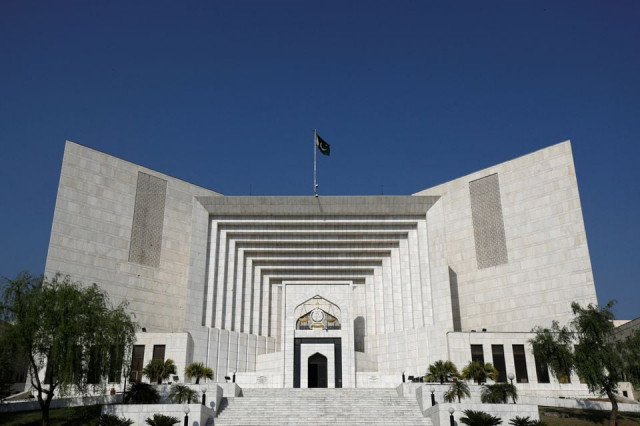‘Apex court cannot strike down laws’
As court hears Imran’s plea against NAO tweaks, govt lawyer says judiciary not empowered to declare law null, void

Supreme Court’s Justice Mansoor Ali Shah on Tuesday, while hearing a plea against the changes in the accountability law, observed that judges, unlike lawmakers, took oath to make decisions in accordance with law instead of the country's national security, development and prosperity.
A three-judge special bench of the SC, headed by Chief Justice of Pakistan Umar Ata Bandial and comprising Justice Ijazul Ahsan and Justice Shah, resumed the hearing of a petition filed by PTI chairman and deposed premier Imran Khan against the current government’s changes in the National Accountability Ordinance (NAO) 1999.
Federal government’s lawyer Makhdoom Ali Khan, while starting his arguments, took the stand that there were no significant points in the petition that could be answered.
“When there is no other way left, the judiciary, parliament and executive must remain within their respective limits,” he added.
He contended that the judiciary was not given the power in the Constitution to declare a law null and void, but the SC, through its decision, had given it the authority to do so.
The lawyer said the power to declare laws null and void was conditional even in a judicial decision.
He noted that the amendments had also been challenged on the grounds that they were against Islamic principles.
He added that the Federal Shariat Court (FST) was the only forum to declare a law unIslamic.
Khan observed that the SC did not have the authority to review legislation in the context of Shariah law.
He maintained that legislation was a power of parliament that could not be interfered with by the SC.
The government’s lawyer cited the example of the US president, who had the authority to pardon criminals.
He pointed out that whether or not the US president’s decision was correct or not, the judiciary there had never interfered in the matter.
Khan noted that since 1947 in the country’s legal system, the burden of proof had always been on the petitioner.
He added that the SC itself in its verdicts had declared that court’s could not question the intentions of parliament.
The CJP, while pointing out that a certain number of lawmakers needed to be present in the House to approve a law, inquired how many of them were there when the amendments were passed.
Khan replied that he would let the SC know about the exact number of lawmakers present in the House at that time, adding that a law had never been invalidated on the basis that it was not approved by the majority.
The chief justice remarked that it was merely an inquiry and the lawyer did not need to become emotional about it.
Khan told the court that every lawmaker took an oath to make decisions in accordance with the Constitution.
Justice Ahsan noted that the oath of the lawmakers required them to make decisions for national security, development and improvement of the country.
He inquired that if a law, which was contrary to these principles was passed, would it be considered a violation of the oath of parliamentarians.
Khan reiterated that no court could ascertain the intentions of parliament.
Justice Shah observed that the only difference between the oath of judges and lawmakers was that the former were sworn in on the basis of making decisions according to law.
He added that judges did not take an oath of making decisions for the national security, development and prosperity of the country.
The lawyer replied that judges were bound to make decisions according to the Constitution and law.
He added that the legislation approved by the members of parliament was considered to be in favour of the country's security, development, and improvement.
Khan quoted a US SC judge as saying that the legislature had every right to enact any “stupid” legislation.
He added that the US court had declared that the people would help their elected representatives even if they went to “hell” with them.
Later, the hearing of the case was adjourned till Wednesday (today).



















COMMENTS
Comments are moderated and generally will be posted if they are on-topic and not abusive.
For more information, please see our Comments FAQ